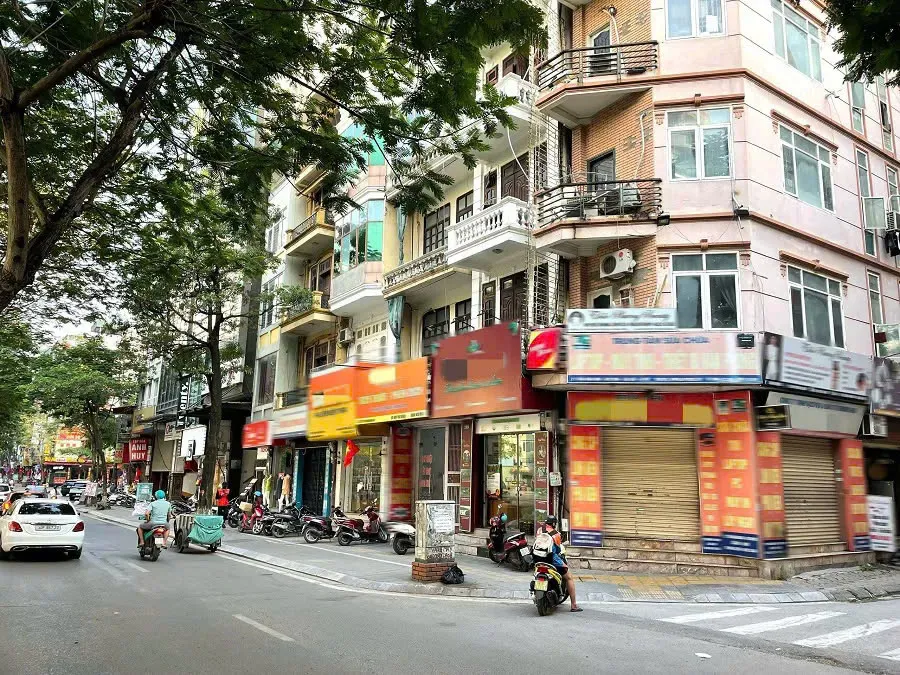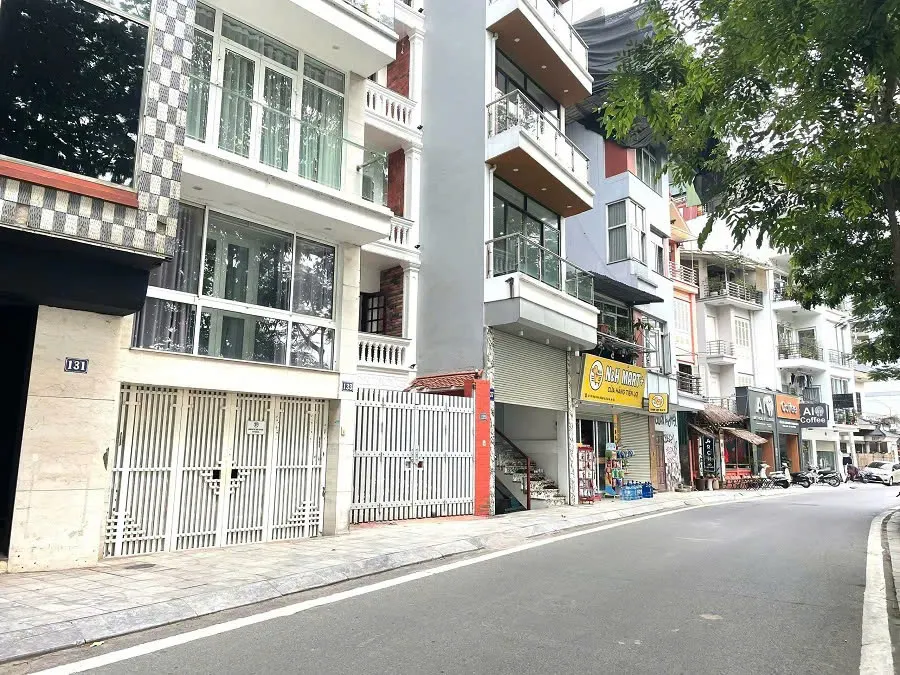Street front house prices in central Hanoi close to $27,000/m2
Land scarcity and high profitability have driven up rapidly the prices of street-front houses in Hanoi's urban districts over the past two years.
THE HANOI TIMES — Private residential prices in central Hanoi have been skyrocketing over the past few months.
Many homebuyers are stunned to find that some properties are priced at over VND700 million (US$27,000) per square meter (sq.m).

Nguyen Khanh Toan Street, Cau Giay District. Photo: Le Tam/The Hanoi Times
Nguyen Thu Phuong, 60, recently bought a 40-square-meter house in Trung Liet Ward, Dong Da District, for about VND16 billion ($616,000), or nearly VND400 million ($15,400) per sq.m.
"The three-story house is a gift for my son and his family," she told The Hanoi Times.
Located on a small alley but still accessible by car, the property is close to markets and hospitals and offers convenient transportation to both downtown and the surrounding suburbs, Phuong said.
"Real estate in my area has gone up sharply and crazily," she said. "Just a year ago, a house nearby cost around VND9-VND10 billion ($346,500-385,000)."
On Nguyen Thai Hoc Street, also in Dong Da District, Nguyen Van Duong said that many houses have a price tag of tens of billions of dong.
Houses on this main street are now selling for VND500-VND650 million ($19,250-$25,000)/sq.m, up 25% from the end of 2023.
"Despite the high prices, there are still many people making home tour appointments due to the prime location and accessibility," he said.
Thanh Tung, 38, a freelance businessman, has been in search of a street-front house in Thanh Xuan District for his shop and home.
He recently took a look at a five-story property on Vu Tong Phan Street with an area of over 50 square meters, priced at nearly VND27 billion ($1 million), or about VND538 million ($20,700)/sq.m.
"Similar offers in the surrounding areas are also in the range of VND500-VND650 million ($19,250-$25,000)/sq.m," he said.
"The location is great for business, but the price is way over my budget, so I've had to turn my sights to more affordable areas."
According to Q1/2025 data from real estate website Batdongsan.com.vn, the average price of private property in Hanoi's central districts rose by 30% year-on-year to nearly VND440 million ($16,940)/sq.m.
In Ba Dinh District, houses on Nguyen Cong Hoan Street are being offered at a maximum of VND520 million ($20,020)/sq.m, up 15% from last year. Properties on Kim Ma Street were about VND50 million ($1,920)/sq.m more expensive to a maximum of VND730 million ($28,100)/sq.m.
In Dong Da District, Hoang Cau Street saw prices of houses facing the street rise by about $40 million ($1,540)/sq.m to a maximum of VND516 million ($19,860)/sq.m on average.
Private house prices have also experienced similar appreciation on Yen Lang and Huynh Thuc Khang streets, where the streets are conducive to the establishment of shops and offices.
Prices of private houses on Huynh Thuc Khang Street peaked at VND770 million ($29,640)/sq.m, up 7-10% year-on-year.
Caution on asking prices
According to Batdongsan.com.vn, the sharpest price hikes are seen in the private property segment with prime business frontage on central streets.

Private houses on Nhat Tan Street, Tay Ho District. Photo: Le Tam/The Hanoi Times
Real estate broker Nguyen Van Tuan said properties on major roads often carry hefty price tags in the tens of billions of dong, making them prohibitively expensive for most buyers.
He attributed the recent rise in private home prices to increases in other real estate segments.
"Despite the high prices, these properties remain attractive to long-term investors because of their ability to generate rental income and the lack of supply in the city center."
According to real estate experts, potential buyers should carefully evaluate the legal status and structural quality of properties to avoid hidden risks.
Nguyen The Diep, Vice Chairman of the Hanoi Real Estate Club, attributed the price hike to high expectations from property owners and investors.
"Street-front houses in prime areas are expected to continue rising due to convenient transportation and limited new supply," he said.
"However, buyers should be cautious as the final prices may be much lower than the asking prices."
Nguyen Van Dinh, Vice Chairman of the Vietnam Association of Realtors, said the segment remains attractive as increasing population density leads to appreciation, making such properties a rare commodity.
"Even if the real estate market slows down, this segment continues to be seen as a stable and profitable investment," Dinh said.
He recommended that buyers do their homework on pricing, legal status, and construction quality before purchasing to avoid costly mistakes.












